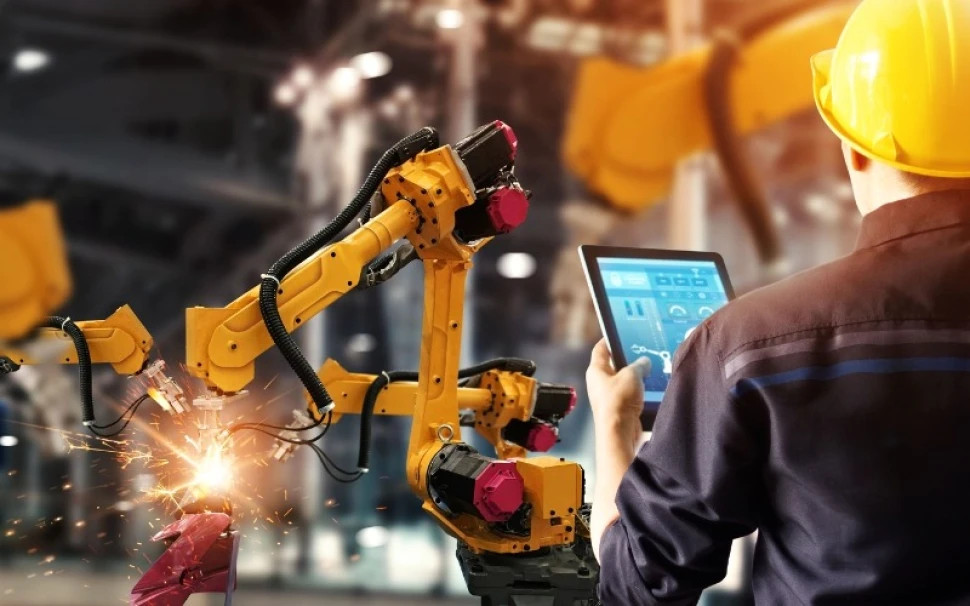
Everywhere you look, automation is being talked about - some see it as salvation and others say it will make glassmakers redundant. As with all change - especially technical change - people worry about the impact it will have on their existing lives. So we took a look at how automation is affecting the running of the business.
We will look at whether individual areas of company automation are feasible, where their benefits lie, and where the risks lie. However, it is important to remember that automation is not so much about replacing people with technology, but about moving human capacity to areas where it makes much more sense.
By gradually removing the need for tedious and monotonous activities, new jobs can be created that bring ideas and innovations that move the company (and, by extension, humanity) forward.
The first step towards automation is process automation.
Process automation is a broad term, as there are dozens of processes going on in your company. Simply put, it is the automation of processes and activities that are nowadays unnecessary to be performed by humans. Not only can software or a machine do them faster, but in most cases it can do them better. For example, an employee copying data from one spreadsheet to another can be replaced very easily and probably won't even mind being assigned to another more meaningful activity.
If you are a larger company, you can kill all the birds with one stone with an ERP system. This automates processes, plus it integrates different parts of the company into one unit, making it easier to collect and share data between different departments and ensuring that all employees have access to up-to-date information. Sounds great, doesn't it?
One of the ways to use an ERP system is to automate inventory tracking and inventory management. Every time you sell or buy goods, the stock database is automatically updated, ensuring that you always know how much you have in stock. This can help minimize losses due to stock-outs, while reducing the risk of unnecessarily stocking certain items. Ideally, everything works without having to keep track of stock levels by a worker with folders full of cluttered papers.
You can also automate the physical movement of goods around the warehouse. There are complex systems, such as the AutoStore system, that rely on robotic handling of goods. Warehouse workers are replaced by robots (don't imagine a humanoid robot, but rather something like a small crane) that quickly locate goods by coordinates, pick them up, and hand them over to the customer for packaging and delivery. They work tirelessly, without a break, day and night. Such a warehouse is used, for example, by Alza or Rohlik.
→ Tip: See how you can optimize warehouse utilization by up to 20%.
They coincide with the benefits of process automation:
As you may have already seen from the text, automation of production processes will significantly increase efficiency. Everything is faster, cheaper and of higher quality. This also improves the competitiveness of your company. Again, an ERP system will be your best partner here.
It integrates data from different departments, allowing you to have clear central management and fast information sharing. In addition, you can set up production planning and control, which allows you to optimally use production capacity and minimize delays.
In addition, it can also monitor the quality of goods and ensure that everything is in line with the required standards. And last but not least, it collects and analyses production data so you can make quick decisions and optimise the production process.
They are again almost identical, it is above all:
They're probably not surprising anymore either:
First of all, that resisting progress is nonsense. But the same goes for blindly following trends, so think carefully about where automation could help you, and where it's an unnecessary investment. If you have a 5×5 m warehouse, you probably don't need to introduce robots. However, you could use software to help you keep track of stock and reorder it yourself if necessary.
The road to progress is paved with technology, and sooner or later you will have to implement it anyway, so if you have the means, don't put it off. And if you do decide to use an ERP system, get in touch. We'll advise you on the best one for your needs, arrange its implementation and manage it for you.




Copyright © 2026 - Algotech a.s., all rights reserved
| Personal data processing |
Terms and conditions